I am really honored to have been selected as a winner of the Pacific Northwest Book Award. In reading the moving essays by the other winners about what it is like to be a writer in the Pacific Northwest, I cannot help but return—as I always return, so many times in a day that it is hardly a return at all—to Hoodoo Mountain, my family’s steep and dusty and haggard and beautiful and impossible forty acres above the small town of Blanchard (whose sad sign announced “The Little Town that Thought it Could”), high in the Idaho Panhandle, a two hour drive from the Canadian border.
It is the place where I grew up, the place I love most in the world, the place I sought to claim forever as my own, in my novel Idaho. When my parents had to sell the land a few years ago, after my dad’s back could no longer handle the eight hours of plowing required for every heavy snowfall, I sought out these lines by Joan Didion for comfort: “A place belongs forever to whomever claims it hardest, remembers it most obsessively, wrenches it from itself, shapes it, renders it, loves it so radically that he remakes it in his own image.”
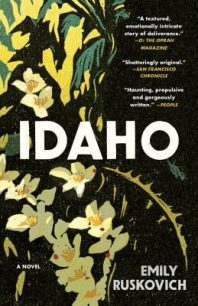 For months after we sold the land, I would read this quote as a way of helping me through my grief. I would tell myself that that is what I was doing by writing Idaho; I claimed, obsessed, wrenched, rendered, loved, remade. And sometimes, that felt like enough.
For months after we sold the land, I would read this quote as a way of helping me through my grief. I would tell myself that that is what I was doing by writing Idaho; I claimed, obsessed, wrenched, rendered, loved, remade. And sometimes, that felt like enough.
But, to this day, I can’t bear thinking of that land owned by anyone else. I can’t bear to imagine alterations. Mostly, it pains me to think of any evidence that my own childhood is not still being lived up there, that it’s been landscaped away by people who do not know how we struggled and endured and grew closer, by people who do not know—me. What I worry is that those new owners will change what I know in reality can never be changed: my own past.
And when I begin to feel that grief again, and when I feel strangers trespass on what is only a landscape but feels like a memory, what I think of now is Annie, our family hound. Remembering her makes the mountain once again larger than myself.
Half plott, half bluetick.
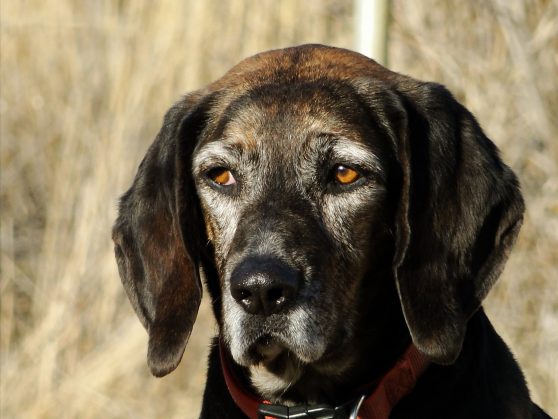
Annie
As a puppy, she was all skin and ears, wobbly, so black she shone blue, her coat oily and loose, her snout to the ground, her bray a broken warble. She was untrained, undignified, disloyal, gentle, and we loved her for all of these things; she was like us in that she knew what she was and what she wasn’t, and she never pretended to be something more. She was just our dog.
She never came when called; she was cowardly but unabashed; if, out on a walk with you, she provoked a moose in the woods and it began to chase her, she ran back to you for her protection, putting you in danger of the thundering moose, using you as a distraction, so that you had to climb a tree with a snorting moose below you, as Annie ran home for safety, unimpeded.
My dad would bend down with his bad back to hold her seal-like face in his hands. He’d say, each time, with affectionate condescension, “Annie, you’re not just a dog. Why, you’re all the way to hound.” Her ears, when he held her face this way, flopped over the tops of both his hands. These ears were of a different fur, softer. Each ear like a leaf of mullein weed. We took pleasure, even as adults, in pinching those ears between our lips.
For every mile we walked on that mountain, Annie ran ten, her nose down in the mulchy pineneedles. Her emotions were smells and stirrings. They were the emotions of the mountain itself. Wild turkeys enraged her, squirrels gladdened her joints and deer flapped out her casual tongue. Moose shivered her spine and tucked her tail. She was intimate enemies with the weasels years before we ever saw one, driven mad with pleasure at the bushy-tailed wood-rat that had dug its skunky hole beneath her dog house. And the smell of the badger’s hole was a nagging thought, an insipid guilt, the only thing that shamed her.
She was a scavenger, but never a killer. She would drag entire deer spines with great difficulty for several miles, moping at you with her large eyes as if she was obeying your order to do so, rather than her own desires. Once, she carried a deer leg that still had its knee joint perfectly in tact, so that as Annie bounced along with the thigh in her mouth, the hoofed leg kicked at her chest in protest.
Our yard was littered with pieces of animals killed miles and miles away by coyotes or cougars. Without Annie, how could we ever have known the violence occurring all around us, the secrets of our mountain? She dragged casual horror into our paradise, laid bare ugly secrets right atop our childhoods. Meaty shoulder sockets, spines, heads—all brought dutifully home by our sweet hound to gnaw and relish, thumping her proud tail as if the kill were hers. It never was. Even the turkeys chased her away. Deer snorted and intimidated her, stomped their feet at her, and she hustled toward us for protection. Good old Annie, our cowardly hound. She slept inside, but on a pillow right by the sliding glass door, always looking out. She was not comfortable indoors, but she also never left the yard unless we left with her.
I remember once she came up beside me on a walk, and I happened to look down at her, and what I saw was not her head, but a fawn’s. A perfect fawn’s head, life bright in its wide-open eyes. Fear still in them, too. The fawn was looking up at me from Annie’s body, as if to see what I would do. Eyelashes and whiskers and the freckles on her snout, an earnest confusion.
I could not help but scream.
The fawn’s head was the exact same size as Annie’s, and the illusion was horrifying, as if both heads belonged to the same creature, only one was clutched in the other’s jaws.
Annie carried the head with her all the way home, cheerfully, the fawn’s eyes over the course of that walk gathering death the way a sky gathers clouds. And I could hear the coyotes in the distance, fighting over the rest of their very recent kill. How did Annie manage to sneak away that perfect head, beautiful in spite of its horror, and made horrifying by its beauty? I imagine she took advantage of the coyotes’ fighting over the better parts. She settled for what she could get away with. That was our dog, our Annie.
Once, her excitement led to us the carcass of a poached moose. The entire body was untouched except for the head. The head was sawed off, stolen, gone. This deliberate travesty revealed to us what we had long-suspected about our unnamed neighbors deep in those woods, who had robbed and threatened us. Now we knew they robbed the forest, too. All that meat, laid to waste, for the prize of a poached head. Annie, unknowing, had revealed to us their ugly disregard. She was well-acquainted with such ugliness, but it was her treat, her innocent pleasure. Only our souls could shimmer with outrage, and so we were like her second heart, while she was ours.
She followed not just animals but their stories, their lives and deaths, natural or wrongful. Her layers of pleasure were like the layers of the ground she gathered in her snout. Every inch of soil was dense with stories lingering, drying up, darkened, deepened, renewed by rain. The poacher’s footstep, ages beneath my own, ages beneath the bobcat’s track, beneath the furry coyote scat, beneath the sly ant-lion’s trap. The smells were stories which only she, of all our family members, could follow—deeper, deeper inside herself, inside the history we could easily pretend was only ours, until she revealed something more.
Because, as my dad always said, she was more than dog. She was all the way to hound. She is everything about that mountain that I have never known, everything I never will, and everything I do. She wrote my book alongside me, because she dragged the truth right in front of my eyes, laid carcasses over my ideals. Violence, death, beauty. The mountain was all those things, and I knew it largely because of her. She is every dog in Idaho. Searching for lost June. Remembering what humans can’t.
We knew the porcupines only because we pulled their quills out of her soft, black lips. We knew the final expression on a fawn’s face, only because she carried it to us, forced us to see. She dug her nose into holes whose scents set her spine on fire. Her raised fur was the extent of our own knowledge—our knowledge of everything we knew we couldn’t know. We gathered from her what we couldn’t gather for ourselves. And she complicated everything with innocence: A joy in so much carnage. Mystery stripped of morality. Spring stripped of illusion. Blood on the buttercups.
By the time the land was sold, she was an old dog. The black hair turned white around her eyes. But she was strong and healthy and fast. We worried about how she would handle the move away from the mountain that had been the only home she’d known since she was just a few weeks old. My parents were having a house built on thirty acres of the Grangeville prairie, but, until it was complete, they would have to rent a little house in town. Annie would need to be trained—to take a leash, to come when called, to never stray. She would have to get used to being tied up or brought inside. There were three months between the sale and the closing, and those three months were taken up largely with anxiety, trying to teach Annie what seemed it would break her heart to learn.
Then, one day, not long after I myself said goodbye to the Hoodoo for the last time, when we were only a few days from closing, my mom and Annie went up the mountain.
It’s important to understand that it was incredibly rare to encounter another human soul whenever you went up. I don’t believe that I ever saw anyone, anyone, in the seventeen years that I walked that particular abandoned logging road a quarter mile straight up from our home. The road had long been taken over by weeds, so it was like walking over a long and narrow meadow through the trees. Up there, you were utterly alone.
But, for the first time in years, on that final walk up the mountain with Annie, my mom encountered someone else.
What occurred is a scene I have only glimpsed through my mother’s teary eyes the one time she told me what happened. Annie rounded the corner before my mom did, and when she did, suddenly, my mother heard the sounds, the growling and barking and the yipping in pain. She ran, and what she saw was our Annie, in the center of a violent chaos of gray. Five enormous dogs were on her, five dogs ripping at our hound. My mother found out later that they were half-husky, half-wolf. A pack with one mind.
Standing nearby, panic-stricken, was a woman my mother had never seen before. She was very, very thin, so thin she looked like she was suffering an illness. Her pretty face was white with horror and confusion. She was too shocked herself to shock her half-wolves, too panicked to correctly operate the remote that would have sent a signal to the collars on those five livid throats.
All that I will say of the fight is that our cowardly little hound fought bravely. She fought with the dignity of a more-than-dog. She fought with the grace and ferocity and the instincts of a hound. She fought for her life. It was the only time that she herself had ever drawn blood from another creature, that she herself took part in the violence that had fed her all those years.
My mother, in desperation, got in the midst of the fight, kicked at the half-wolves, tore them off Annie’s body. The woman pushed one button, which sent shocks to two of the collars, but forgot to press the second button which would have sent shocks to the other three. But between the electricity and my mom’s ferocity, the wolves were pried off our little hound, whose black coat was soaked with blood, and whose brave chest was torn open.
Annie was too heavy for my mom to carry, but she could walk. She stayed right beside my mom the whole way down the mountain. She did not stray. She did not bark. It was the only time in all those years that she did not run ten miles for every one we walked. Her snout was in the air, not on the ground. And so their mile was the same mile, hers and my mom’s. For the first, and the last, time.
My parents buried her in the pasture without a marker on the soil. It’s strange to think that there are people up there now who might walk right over her grave, not knowing. For a long time, I was filled with rage at the woman with her five half-wolves. Who has five half-wolves? Who lets animals that ferocious roam like that up in those woods? The woman was my enemy, as the new owners are my enemies, because of what she took away, heedlessly, and because of what she had failed to understand.
But my mother has since told me that of all the people she ever met on that mountain—aside from one couple we loved dearly, the knife-makers near the top of Hoodoo—she had felt for that woman a strange kinship, an unlikely sisterhood. Even as angry and as terrified as she was, and later as heartbroken, my mom remembered that on that woman’s thin face was a kindness that was very rare up there. Many of our neighbors were unfriendly, even hostile. Weapons and threats. An abandoned meth lab in the woods. Someone had stolen our chicken house, down to the last cinderblock. Someone else stole the gas out of our truck, wasted it in the snow to make a show of their meanness, then cut the gas line so we would waste more ourselves when we tried to pour some in. We were astounded that though the local dump was free—a policy adopted in order to prevent people from dumping illegally in the woods—people still went to a great deal of trouble to do it. They hauled their old stoves miles into the forest. Their wrecked cars. Their dead cattle. Their broken air conditioners. We stumbled upon these things accidentally, amazed at the inconvenience people were willing to endure simply for the right—and pleasure—of doing something wrong. We had been shown very little kindness in all those years we lived up there, even though my dad and the knife-maker plowed the road which would have been impassable for everyone else without them. Seventeen years, and only one person ever offered to pitch in a few dollars for all those years of work and labor and machinery and gasoline.
But who knew that somewhere nearby, amidst all the chaos and hostility of those beautiful woods, was this kind and timid woman, poor and earnest, living in some remote trailer, with only her half-wolves to love?
She had come from Switzerland. She missed her country. This, too, she had told my mother later, through her tears. When her mother dog had the wolf pups, she had intended to get rid of them, but her loneliness was such that she couldn’t part with even one. She knew it was crazy, she later told my mom. She knew it was irresponsible. But in some illogical way, keeping those wolves was like keeping her country close. She could not live without them. Though she wanted desperately to return to Switzerland, she could not leave until every one of her dogs had passed away. They were her dogs, her wolves, her country. She loved them as we loved our Annie. And our land.
I imagine she’s still there. I imagine she still feels sorry. The death of our hound hurt her almost as much as it hurt us, and she felt terrible for days over what her dogs had done, mourned the event to the point that it was my own mother who sent her a kind of sympathy card. “We get comfort, by giving comfort.” That’s all it said. On the front, a photo of a blackbird cupped in someone’s hands.
And it gives me strange comfort, now, to think of her. It gives me comfort to think of my mother’s sympathy card gathering dust, but open, on some cluttered counter in some trailer in those woods we no longer know. Sympathy given by the one who has lost to the one who has taken.
We get comfort, by giving comfort.
Now, enough time has passed that I can’t ignore the compassion that I maybe have always felt, underneath my rage. When I think of Annie, I think of that woman, too. Not just as the person responsible for her death, but as yet another secret living in those woods. A secret Annie revealed through her own death this time, and not through those many deaths removed from all of us, the deaths of the wild. Who is she, this person, this mystery? What my mother glimpsed that day was a friendship that might have been, had we stayed. A kindness and sadness we all could understand, in spite of ourselves. A kindness and sadness that is forever linked to the soil of a pasture that was once a hound’s heart.
I think of her often.
We are all like that woman a little, I think. Making our mistakes. Missing home. And holding close, for dear life, our wolves.
The plaque for the 2018 PNBA Book Award for Idaho will be presented to Emily Ruskovich at a local, independent bookstore, location and time TBD. nwbooklovers has posted original essays from this year’s award winners on Fridays in January and February. You can enjoy essays from past winners of the PNBA Book Award in our archive.
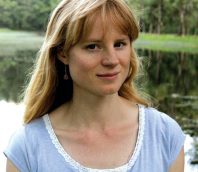

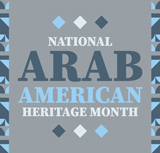
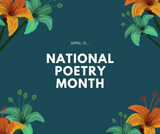
This story hits so close to home. Man, I wish Emily would write a new book.
I would very much like to read a non-fiction book written by Emily. All she needs is to find a person, an event, a town that she is interested in and tell the story. There’s gotta be a Seabiscuit or Boys in the Boat story somewhere that she would care to unveil to her eager readers. Heck, tell the story of how Idaho Fish and Game tracked down a nefarious poacher.